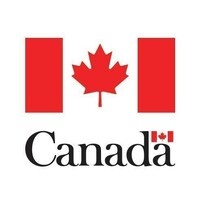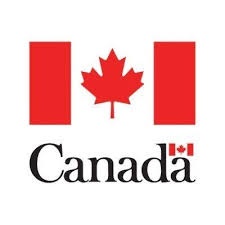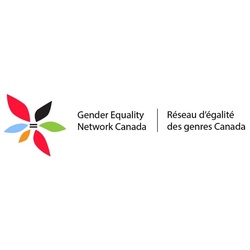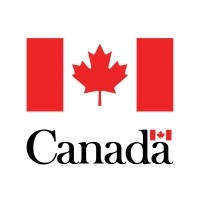
Closed
The Indigenous Partnerships for Species at Risk (IPSAR)
Last Update: March 4, 2026
Canada
Supports Indigenous-led conservation of species at risk and habitats
Grant and Funding
At a glance
Funding available
Financing goals
Increasing community impact
Develop strategic partnerships
Reduce the ecological footprint
See more
Eligible Funding
- Maximum amount : 50,000 $
Timeline
- Open Date : October 1, 2025
- Closing date : November 13, 2025
Eligible candidates
Eligible Industries
- Agriculture, forestry, fishing and hunting
- Educational services
- Other services (except public administration)
- Public administration
Location
- Canada
Legal structures
- Financial cooperative
- Non-profit
- Public or Parapublic institution
- For-profit business
- Non-financial cooperative
Annual revenue
- All revenue ranges
Organisation size
- All organization sizes
Audience
- Indigenous Peoples
Non-profit candidates
Sector of operation
- All industries
Target groups
- All the groups
Revenue structures
- All structures
Scope
- All dimensions
Overview
The Indigenous Partnerships for Species at Risk (IPSAR) program, administered by Environment and Climate Change Canada, provides up to $50,000 per year for projects that support the conservation, protection, and recovery of species at risk and their habitats on Indigenous lands. Eligible activities include habitat protection, habitat improvement, species stewardship, conservation planning, surveys, Indigenous knowledge documentation, outreach, and education.
Activities funded
- Protection and securement of habitats for species at risk through purchase, donation, or other securement means.
- Enhancement or restoration of habitats and adaptation of land or water management practices.
- Direct stewardship activities aimed at the recovery or protection of species under immediate threat or proactive measures to prevent future threats.
- Conservation planning and development of local strategies or stewardship programs for species at risk.
- Outreach, education, and knowledge-sharing activities to promote conservation efforts within Indigenous communities and the broader public.
Eligibility
- The applicant must be an Indigenous community or organization located in Canada (including Indigenous not-for-profit and for-profit organizations, territorially-based Indigenous groups, Chiefs' councils, district councils, tribal councils, traditionally appointed advisory committees, Indigenous corporations, partnerships, research or academic institutions, cultural education centres, land/resource management authorities, co-operatives, societies, boards and commissions).
- Other organizations (including non-Indigenous) are eligible only if mandated by an eligible Indigenous recipient to apply on their behalf.
- Projects must support the conservation, protection, and recovery of species at risk or culturally significant species and their habitats.
- Project activities must take place on eligible Indigenous lands or lands where traditional Indigenous activities occur.
Who is eligible?
- Indigenous not-for-profit organizations
- Indigenous for-profit organizations
- Territorially-based Indigenous groups
- Chiefs' councils, district councils, and tribal councils
- Indigenous corporations, partnerships, and groups
- Indigenous research, academic, and educational institutions
- Indigenous cultural education centres
- Indigenous land/resource management authorities
- Indigenous co-operatives
- Indigenous societies, boards, and commissions
Who is not eligible
- Non-Indigenous companies or organizations that are not mandated by an eligible Indigenous group.
- Organizations conducting projects on lands not controlled by Indigenous peoples or not associated with Indigenous traditional activities.
- Businesses proposing activities unrelated to the conservation, protection, or recovery of species at risk and their habitats.
- Applicants seeking funding for aquatic species projects, as these are managed by Fisheries and Oceans Canada.
Eligible expenses
- Costs for habitat protection through purchase, donation, or securement means.
- Expenses related to habitat improvement, such as materials and services for enhancing or restoring habitats and changing land or water management practices.
- Direct stewardship intervention costs to protect species at risk.
- Costs for conservation planning, including the development of strategies, stewardship programs, and engagement initiatives.
- Expenses for conducting surveys, inventories, and monitoring activities for habitats and species.
- Evaluation costs for assessing the results and effectiveness of conservation activities.
- Documentation and use of Indigenous knowledge, including the development of strategies, procedures, or protocols.
- Outreach and communications costs, including materials for engaging relevant audiences and promoting stewardship.
- Education and training expenses to enhance practitioner and stakeholder knowledge or skills.
- Costs related to official language translation, including producing documents or signage in both English and French.
Eligible geographic areas
- Indigenous communities and organizations located in Canada
How to apply
- Step 1: Review the Program Guidelines
- Obtain and thoroughly review the applicant guide by contacting the National IPSAR Office.
- Familiarize yourself with program objectives, eligible activities, matching contributions, and official language requirements.
- Step 2: Prepare Project Proposal
- Develop a project proposal outlining activities, expected results, budget, sources of matching funds, and timeline.
- List anticipated and confirmed contributions from non-federal sources.
- Consider the requirements under the Impact Assessment Act if applicable.
- Address official language obligations if your project involves public communications or is located in an Official Language Minority Community.
- Step 3: Create an Account on GCEMS Portal
- Access the Grants and Contributions Enterprise Management System (GCEMS) portal.
- Set up an organizational account as per instructions found on the "How to apply" page.
- Step 4: Complete the Online Application
- Log in to the GCEMS portal to access the IPSAR funding application.
- Fill out all required fields, including details on project activities, budgets, matching contributions, and the Official Language section.
- Attach all necessary supporting documents.
- Step 5: Submit the Application
- Submit the completed application via the GCEMS portal before the deadline of November 13, 2025, at 14:00 Eastern Time.
- Monitor for any confirmation or follow-up communications from the program administrators.
- Step 6: Contact for Assistance (if required)
- If you encounter issues with the GCEMS system or require an accessible or alternate application format, contact the National IPSAR Office or the GCEMS technical support team before the deadline.
Additional information
- Multi-year projects are allowed, with new projects spanning 1 to 3 years and existing projects possibly extended up to a total of 10 years.
- Costs related to official language translation are eligible expenses under the program.
- In-kind contributions, such as volunteer time or equipment use, can count towards matching requirements.
- Applicants are encouraged to submit applications early, as the online system may slow down near the deadline due to high traffic.
Contacts
PAEP-IPSAR@ec.gc.ca
Canada
Apply to this program
Frequently Asked Questions about the The Indigenous Partnerships for Species at Risk (IPSAR) Program
Here are answers to the most common questions about the The Indigenous Partnerships for Species at Risk (IPSAR). This section explains what the program is, how much funding is available, eligibility requirements, application deadlines, and other important details to help you determine if this grant is right for your business.
What is the The Indigenous Partnerships for Species at Risk (IPSAR)?
How much funding can be received?
What is the deadline to apply?
Who is eligible for the The Indigenous Partnerships for Species at Risk (IPSAR) program?
What expenses are eligible under The Indigenous Partnerships for Species at Risk (IPSAR)?
Who can I contact for more information about the The Indigenous Partnerships for Species at Risk (IPSAR)?
Where is the The Indigenous Partnerships for Species at Risk (IPSAR) available?
Apply to this program
More programs like this

Grant and FundingClosed
Industrial Research Assistance Program (IRAP) – AI Assist
Supports Canadian SMEs in adopting and integrating advanced AI solutions

Grant and FundingClosed
Canada Public Transit Fund
Supports long-term public transit and active transportation infrastructure development

Researchers And FacilitiesPartnering and CollaborationWage Subsidies And InternsOpen
Mitacs Accelerate
Connect organizations with academia for research and innovation collaboration

Grant and FundingClosed
Canada Service Corps – Service Placements Regional Stream
Funding for organizations to develop youth volunteer service placements

Grant and FundingClosed
ISED — Artificial intelligence (AI)
Supports testing innovative AI prototypes for Canadian government needs

Grant and FundingOpen
Active Transportation Fund
Supports infrastructure projects for safer, more accessible active transportation

Partnering and CollaborationGrant and Fundingarchived
Equality for Sex, Sexual Orientation, Gender Identity and Expression Program
Supports equality initiatives for sex, sexual orientation, and gender identity

Grant and FundingClosed
Crime Prevention Action Fund (CPAF)
Supports evidence-based crime prevention initiatives for at-risk communities

Grant and FundingClosed
Substance Use and Addictions Program (SUAP)
Supports innovative projects addressing substance use prevention and treatment

Grant and FundingOpenClosing Soon
Humanitarian Workforce (HWF) - COVID-19 and other large-scale emergencies
Supports NGOs in emergency response and capacity building activities
Sign up to our platform to access the The Indigenous Partnerships for Species at Risk (IPSAR) information sheet for free
Get access to 10,000+ programs, practical guides, personalized alerts, and an AI assistant to support your grant applications.